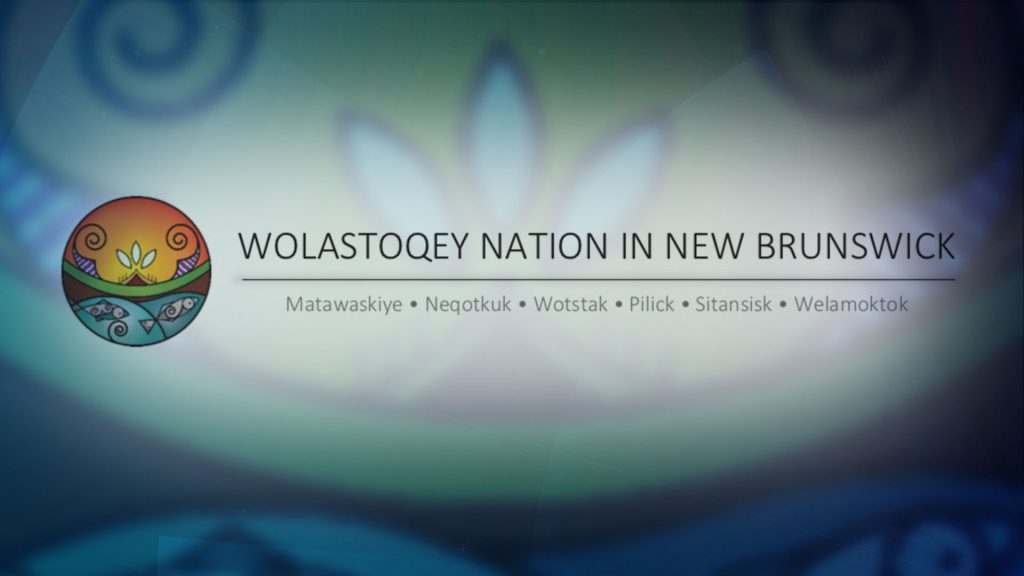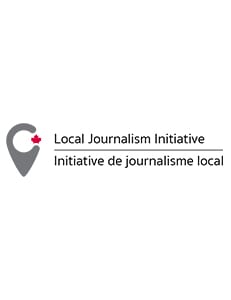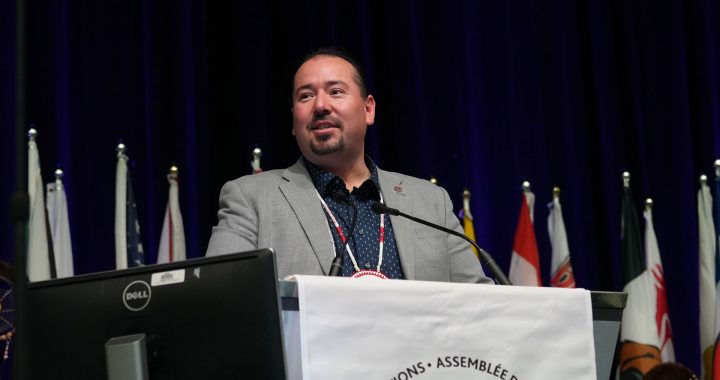
New Brunswick’s attorney general says he’s calling off the lawyers who were hired by the provincial government to fight Aboriginal title claims in court.
Fulfilling a promise made by the Liberals during the election campaign, Rob McKee announced in a news release on Monday his office had instructed lawyers representing the provincial government that in most cases involving questions of Aboriginal title or treaty rights, they are to seek consent from counsel representing First Nations to pause all litigation while the two sides pursue negotiated settlements.
It’s a marked departure from the previous Progressive Conservative government led by Blaine Higgs, which fought tooth and nail over the last several years to challenge the First Nations’ claims for all New Brunswick’s territory. Higgs had warned the chiefs were after people’s private property.
After six years in power, his party lost the election on Oct. 21, with the Liberals forming a majority.
McKee drew attention to the claim filed by the Wolastoqey Nation in 2020 for the western side of the province. Court of King’s Bench Justice Kathryn Gregory ruled on a slew of preliminary motions last week that removed private property owners from the title claim but also gave credence to some of the arguments made by Indigenous chiefs.
“The court’s decision was helpful in reminding us that Aboriginal title is primarily about reconciliation,” McKee said. “The decision also emphasized that title claims are best discussed at the negotiation table versus a courtroom, which our government agrees with.”
The new Liberal government has also rescinded an order of the previous Tory administration instructing public servants not to make land acknowledgements stating that they were working on the unceded territory of Indigenous people.
That move had prompted civil servants to quickly delete references in email signatures to the Wolastoqiyik, the Mi’kmaq and the Peskotomuhkatiyik as founding peoples in the region.
Representatives from all three groups have launched court action about their desire for a declaration of Aboriginal title on their traditional lands.
The release on Monday stated that as part of the government’s ongoing commitment to truth and reconciliation, government employees have been invited to use a land acknowledgement at formal meetings, at events, in publications and in other government venues and settings.
The news came only hours after Premier Susan Holt and Indigenous Affairs Minister Keith Chiasson met with the six chiefs of the Wolastoqey Nation at Sitansisk, or St. Mary’s First Nation, in Fredericton to discuss the issues.
Chief Patricia Bernard of Madawaskiye or Madawaska Maliseet First Nation said the chiefs were very happy with the morning meeting. Holt stayed for a half hour, and Chiasson held discussions with them for two hours.
“The province came in with a really open-minded, refreshing approach,” Bernard said. “The premier and Indigenous Affairs minister wanted to hear from us and our priorities, what we want to see, and how we want to approach it. So it was a fantastic meeting.”
The two main issues on the table were the Aboriginal title claim and tax-sharing agreements that the Tory government cancelled. Those agreements, the first of which dated back 30 years, allowed First Nations to recoup provincial sales tax paid at businesses on reserves to spend on public services in their communities, such as in-home support for elders, addictions counselling, and topping up dentistry benefits.
Revenue from those tax agreements also paid for paving roads, garbage collection, fire protection, and water and sewage treatment in the First Nations.
They were worth close to $50 million annually. Higgs didn’t like them because the benefits weren’t spread between the First Nations equally or based on the size of their populations, and it bled provincial coffers of revenues.
Bernard said the chiefs want the Liberal government to put the old tax agreements back into effect immediately until new agreements can be negotiated. But she added that no promises were made.
As for the title claim, she said her side had no intention of appealing the decision by Justice Gregory on the preliminary motions.
She said they were happy with her judgment.
“Although it releases industrial defendants from the claim, the judge was clear in stating that Aboriginal title and private land holders can exist simultaneously, and that’s a big win for us,” Bernard said.
“The industrial defendants got their wish, they were removed from the claim, but that doesn’t necessarily mean that we can’t get their land if we need it. The government can expropriate it, if necessary. But again, that’s another issue where we want to sit down and negotiate. And they are willing and so are we.”
She said if the Liberals show good faith in negotiations, the chiefs will consider pausing the lawsuit.
Read More:
Wolastoqey chiefs ‘ecstatic’ with Liberal win in New Brunswick
The Mi’kmaq chiefs also met with Chiasson last Friday. They filed a lawsuit earlier this year for Aboriginal title for the eastern half of New Brunswick, but so far the case hasn’t gone very far.
Chief Terry Richardson of Oinpegitjoig or Pabineau First Nation used the same word as Bernard to describe the three and a half hour meeting in Metepenagiag near Miramichi: refreshing.
“I really like Minister Chiasson. He said, ‘hey, I’m a beer and pretzels kind of guy, let’s talk coz I want to get to work,’” Richardson told Brunswick News. “And we did. We started discussing the issues. We’re re-establishing the relationship, right? And obviously that’s going to take time. Because there’s still that mistrust from the previous government that was there, which is why we filed the litigation.”
Richardson said no promises were made, other than the two sides agreed to keep talking more regularly. The Mi’kmaq did not name private property owners as defendants in their claim, but they were keen to make a deal on tree cutting rights on Crown land, where big timber companies operate.
“It was a good first meeting. It set the tone. Let’s get to the table and keep talking.”
The chief said he didn’t want First Nations issues to become partisan politics either. He said he’d be reaching out to Glen Savoie, the interim leader of the Official Opposition and the Tory party, to discuss the issues.
“We should all be in this together,” he said. “We can make this a win on all sides.”
Story by John Chilibeck, Local Journalism Initiative Reporter/The Daily Gleaner











